- Home
- Leo Tolstoy
The Lion and the Puppy Page 2
The Lion and the Puppy Read online
Page 2
Old Bruno bellowed even more fearfully and lumbered off into the trees. Clearly, it was foolhardy to pursue him into the depths of the forest where they might encounter more bears or even wolves. But the master had an idea.
“Put on the goat’s mask and bang your drum,” he told the boy
At the same time he shouted gruffly to the bear, just as he did when he was showing him off, “Dance, Bruno, dance!”
All of a sudden the bear stopped in his tracks, stood up on his hind legs, and began to twirl around slowly. In the meantime, his wily master crept closer, shouting and calling, “Dance, Bruno, dance!”
His assistant all the while clowned before the bear, beating the drum and singing. When the master was quite near, he lunged forward to grab the chain. The bear saw the ruse too late, roared helplessly, and tried to escape. But the master clung on tightly.
And that was how Old Bruno came to be recaptured. Once again he was led round the fairs and inns, forever twirling, clowning, and dancing in his chains.
For people’s amusement.
MASHA AND THE MUSHROOMS
Two little sisters were walking home from gathering mushrooms when they came to a railway track. Thinking no train was near, they climbed over a rail and were crossing the line when, from out of nowhere, a great locomotive whistled shrilly.
The two little girls were scared out of their wits. As the bigger girl held back, her little sister dashed forward to the middle of the track.
“Masha, Masha!” cried her sister. “Go on, go on. Cross the track quickly.”
But the train made such a clattering as it approached that Masha did not hear; she thought she was being called back. And as she turned, the poor girl stumbled and fell, scattering the mushrooms from her basket all over the railway track.
In a panic, the girl tried quickly to gather them up.
The train was now quite near. Its driver hollered and pulled the whistle for all he was worth, and in the meantime Masha’s sister was screaming frantically to her:
“Leave the mushrooms! Oh, let them be!“
Through the din, however, the little girl heard only “the mushrooms” and, thinking her sister had said to pick them up, she was crawling along the track on hands and knees, picking up her scattered mushrooms.
The train was now bearing down on hen . . . There was nothing anyone could do. And, with one despairing whistle, the great monster was upon her.
Masha’s sister could not bear to look: she hid her head in her hands in horror. Ashen-faced, the train’s passengers stared dumbly from the windows, while the guard peered back along the track to see what had become of the poor girl.
There she was, face pressed to the ground, lying motionless between the rails. And then, as the train rumbled on its way, she suddenly lifted her head, picked up the rest of her mushrooms, and ran off, unharmed, to her sister.
DEATH OF A BIRD-CHERRY TREE
A bird-cherry had grown wild beside the path to the nut grove and was blocking out the sunlight from our young hazel trees. For a long time I pondered over it: Should I or should I not cut down the tree?
It seemed a shame to kill such a beautiful thing.
The bird-cherry was more of a tree than a bush, some three feet in girth and twelve feet high, all gnarled and forked, and graced with a white sweet-scented blossom whose fragrance wafted even as far as the house.
I would surely have let it live had not one of my woodmen begun the job one morning. No doubt I had told him sometime earlier to grub out all the bird-cherry
When I came on the scene his axe had already bitten a good foot out of the trunk; and the sap was squealing its complaint at each blow of the axe.
“Oh, well, perhaps it’s all for the good,” I sighed, taking up an axe and lending a hand.
With the chips flying about and the sweet smell of freshly hewn wood in my nostrils, all my doubts about the bird-cherry vanished. My mind was now set on felling the tree. And when we laid aside our axes and put our shoulders to the tree, trying to push it over, I felt a sense of triumph course through my veins. We heaved hard: the leaves trembled, showering us with dewdrops and little white bouquets of petals.
And then an unnerving sound came from inside the very soul of that tree. It was as if someone was screaming in unbearable pain, a tearing, wrenching, long drawn-out scream.
Gripped by a mixture of fear and sorrow, we hastily gave a last heave and, with a heartrending, sobbing sigh, the tree shuddered and fell.
After the first crash, the branches and blossoms lay trembling for a while, then lay still. For several moments, the woodman and I stood silent, unable to speak. Then, in the awkward hush, my companion muttered:
“Whew, she don’t die easy, Sir!“
A lump in my throat blocked my words, and I turned quickly to make my way back to the house. I did not dare glance back.
LITTLE PHILIP WHO WANTED
TO GO TO SCHOOL
Philip was too young to go to school’ But when, at the end of the summer holidays, the older children went off to school, Philip got ready to go too.
His mother was surprised.
“Where are you going, Philip?”
“To school”
“But you’re still too young,” she said with a smile.
His playmates were all in school Father had gone off early that morning to work. And now mother had gone out shopping. So Philip was left at home alone — apart from Grannie, who was still asleep.
Before long he was bored all by himself. And with Grannie snoring softly in the next room, he crept into the hall, put on his coat and, not finding his own cap, picked up father’s old fur hat, and set off through the snow to school.
The school stood beyond the village by the old church. To reach it Philip had to walk down the village street and up a hill. As he was walking past some cottages, however, the guard dogs — a terrier and a fierce Alsatian — began to snap at his heels. He began to run, then stumbled and fell. Just then an old man came out of a nearby cottage and drove off the dogs.
“Hey, young fellow-me-lad, what’s your hurry?” he asked kindly
But Philip gathered himself up and hurried off as best he could through the snow. In no time at all he arrived at the school and quickly dodged through the big doors. No one was to be seen in the hall, though he could hear voices from behind a door.
All of a sudden, doubt seized him: What would the teacher say? If he returned home, though, he risked being bitten by the dogs.
“Why aren’t you in class?” snapped a gruff voice behind him.
It was the school janitor.
“In you go, shoo-shoo.”
So little Philip opened the door of the classroom, taking off his father’s hat as he went. The class was full of children, each chattering away, as a tall schoolmaster in a long red scarf paced up and down between the desks.
“What do you want, boy?” shouted the lanky fellow at Philip.
The lad stood silently in the doorway, looking down at his felt boots.
“Well, speak up, who are you?“
Philip kept silent.
“Have you no tongue, boy? Go back home if you cannot speak“
Philip wanted to speak so much. But the words stuck in his throat. He looked up at the teacher and burst into tears.
At that the man took pity on him and, putting his arm around Philip’s shoulders, he turned to the class, asking if anyone knew him.
“He’s Philip, Michael’s brother,” said a voice. “He can’t wait to come to school, but his mother says he’s too young.”
“Ah-ha,” exclaimed the teacher, stroking his beard. “Well, go and sit on the bench, alongside your brother. Later I’ll have a talk with your mother about your coming to school.”
When the teacher came to show Philip the alphabet, he was surprised to find the boy already knew it. He could even read a little.
“Let’s see you spell your name, if you can,” said the teacher with a smile.
“Fee-
Fi-Lee-Li-Ip-Pi.”
All the class laughed.
“Well done,” said the teacher. “Who taught you to spell?“
Philip now grew bolder.
“Michael did. But I. . . I’m very quick at learning. ... It didn’t take me long.”
The teacher laughed and said, “Not so fast, young man. You must learn to walk before you can run.”
Philip’s first day at school passed all too quickly
And from then on he went to school every day
A YOUNG BOY’S STORY
OF HOW A STORM CAUGHT
HIM IN THE FOREST
When I was little, Mother sent me for mushrooms in the woods. I reached the woods, gathered some mushrooms, and was just about to go home when all at once it turned dark, began to thunder, and rain came down. I was scared stiff and took shelter under a big oak tree. Such bright lightning flashed that it hurt my eyes and I had to screw them up. Above my head something began to creak and crack and I felt a sudden blow on the head. I fell forward and lay there until the rain stopped.
When I came to, the whole forest was dripping water, the birds were singing, and sunlight was dancing in the trees. The big oak had broken up and smoke was rising from the stump. All around me were pieces of oak. My smock was all wet and clinging to my body I had a bump on my head and it ached a lot.
When I found my hat, I picked up the mushrooms and ran home. The house was deserted, so I took some bread from the table, climbed up on the stove, and fell asleep. When I awoke I could see that my mushrooms had already been fried and put on the table for tea.
I shouted down, “What are you eating without me for?”
And they said, “What are you sleeping for? Come and have your tea”
THE KING
AND THE SHIRT
Once a king fell gravely ill and gave an order that half his realm would go to whoever could cure him.
At that, all the wise men gathered to decide how to cure the king. Nobody knew. In the end, a wise man arrived to declare that the king could be cured on one condition.
“If a happy man can be found, the shirt taken from his back and put upon the king, the king will recover.“
So the king sent messengers all over his kingdom to find a happy man, yet none could be found. There was not one man who was content with everything. Whoever was rich was ill; whoever was healthy was poor; whoever was healthy and rich had a mean wife or wicked children. Everyone complained about something.
Late one night the king’s son was riding past a poor cottage when he heard someone say:
“Right, thank the Lord, I’ve done my stint, eaten my fill and can rest in peace. What else do I need?“
The prince was delighted to have found a happy man at last, and gave orders for the man’s shirt to be taken to the king. He would, of course, pay the man as much money as he wished. But when the envoys entered the cottage to take the man’s shirt, they found he was so poor he had no shirt upon his back at all.
TWO BROTHERS LEARN
A LESSON
Two brothers had been walking since first dawn and, by noon, were tired and dusty, so they lay down to rest in a woodland glade.
On awakening they were surprised to find a stone before them, with an inscription faint and ancient. After much pondering, these were the words they read:
Whosoever finds this Stone
Should follow the Sunrise into the Forest Depths.
Within the Forest is a Stream
Which he must cross. On the Far Bank will he a
Mother Bear with her Cubs.
He should take those Cubs
From their Mother and run
To a distant Hill
Without a backward Glance.
Upon that Hill stands a Castle,
And within that Castle
He will find Good Fortune.
For a time the brothers were silent, unable to make up their minds. Then the younger brother boldly exclaimed:
“Come on, Brother, let’s go together. Should the fates be kind, we may swim the stream, take the cubs to the castle, and strike it rich.”
But his brother reproached him.
“I certainly shall not go into the forest for bear cubs, and I advise you against it, too. How do we know the words are true? And even if they are and we enter the forest, night will fall before long and we’ll lose our way Even if we found the stream, how would we cross it? Even if we were to cross it, how would we take the cubs from their mother? And another thing: even if we were to take the cubs, we could hardly reach the hill without a rest. Nor does the Stone tell us what is the good fortune awaiting us at the castle. Perhaps we have no need of it!“
But the younger brother said:
“We’ve nothing to lose by trying. Anyway, if we don’t try our luck, someone else may come along, find the Stone, and take the prize. If you really want something you’ve to work hard for it. Nothing ventured nothing gained.”
“Be content with what you’ve got,” said the other. “A bird in the hand is worth two in the bush.”
There was no agreeing. So in the end, off went the younger man, leaving his brother behind.
He had not gone far into the forest when he came upon a stream, easily swam across it, and spied a mother bear asleep on the bank. Snatching up her cubs, he dashed off without a backward glance, toward a distant hill on whose crown stood a castle. As he ran up the hill, he was astonished to see the castle doors swing open and a great procession emerge, drawing a golden carriage. The people came toward him with great cheers, swept him up, deposited him upon the carriage’s crimson cushions, and drove back to the castle to crown him King.
That was the prize of which the Stone had spoken!
The young man reigned a full five years, but in the sixth year misfor- tune befell him. Without warning, his castle was attacked by another king, even mightier than himself, and he was driven out.
He wandered alone back into the forest, swam across the same stream, and eventually arrived at his brother’s cottage. The elder brother was now living a modest life in a modest way, neither well-to-do nor wanting for food.
How pleased the brothers were to meet again. Over a glass of this and a bowl of that, they recounted their adventures. And at the end of the telling, they each sat back contented.
Said the elder:
“Now you see the wisdom of my choice. All the while I’ve lived in peace and tranquillity; and though you’ve been king, you’re now a pauper, worse off than before.”
But the younger smiled.
“I have no regrets,” he said. “I may be poor in worldly goods, but what wonderful memories I have to treasure!”
A YOUNG BOY’S STORY OF
HOW HE FOUND QUEEN BEES
FOR HIS GRANDDAD
My granddad used to spend his summers in a bee garden. When I visited him he would give me some honey
Once, I had gone to the bee garden and was walking between the hives. I was not frightened of bees because Granddad had taught me to be quiet and still as I approached them. And the bees had grown used to me and did not sting me. But that day I heard something making an awful din in one of the hives. So I went to Granddad in his little hut and told him about it.
He came with me, listened carefully, and said:
“One swarm, the primer, has already left this hive with the old queen bee; and now young queen bees are hatching out. Tomorrow they’ll fly off with other swarms.”
I asked Granddad what sort of bees the queens were, and he said:
“Well, a queen bee is just like an emperor among the people. Without her there would be no bees.”
“But what does she look like?” I asked.
“Come here tomorrow,” he said, “and, God willing, they’ll be swarming. I’ll show you and give you some honey”
Next day when I visited Granddad he had two swarms of bees in cardboard boxes on his porch. Granddad told me to put on a face net that covered my neck. Then he took one swarm of bees in a cardboa
rd box and carried it to the bee garden. How the bees buzzed in their box! I was a bit scared of them and thrust my hands deep into my jacket pockets. But since I so wanted to take a look at the queen bee I followed Granddad.
Once in the garden, Granddad went up to an empty wooden trough, opened the cardboard box, and tipped the bees out of it into the trough. The bees crawled along the trough into a hollow log attached to it, trumpeting all the while, as Granddad poked them with his broom.
And there was the queen! He pointed her out with his broom.
She had a long body and short wings. At once she mingled with the others and soon was lost from sight.
Then Granddad took off my face net and led me back to the hut, where he gave me a big piece of honey As I ate it I got it smeared all over my face and hands, so when I came home my mother said:
“Your silly old Granddad’s been spoiling you with honey again!”
“But he gave me honey,” I said, “for finding him a hive of young queen bees yesterday, and just now we’ve been planting a new swarm together“
THE TIRED SWAN
Across the open sea flew a flock of swans to warmer climes. Farther, yet farther they winged their way through golden dawns and crimson sunsets, cloudless days and stormy nights, on and on without a rest above the shifting waters.
Beating their graceful wings in tuneful rhythm like some angelic choir, the tired swans longed for repose, a haven to rest their aching bodies. But there was no stopping place on their perilous journey Nothing but the boundless sky above and the forbidding sea below.

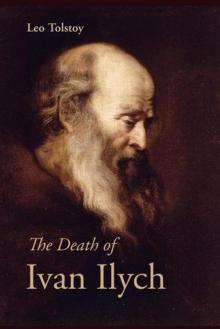 The Death of Ivan Ilych
The Death of Ivan Ilych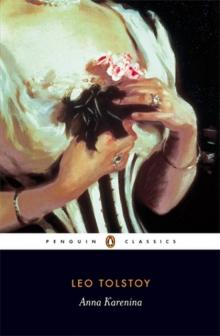 Anna Karenina
Anna Karenina Resurrection
Resurrection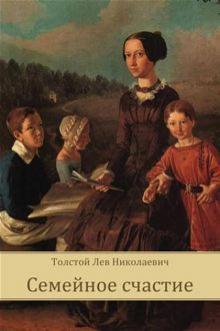 Family Happiness
Family Happiness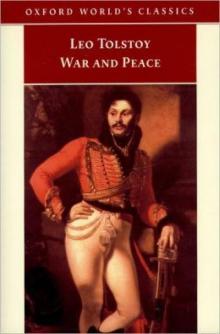 War and Peace
War and Peace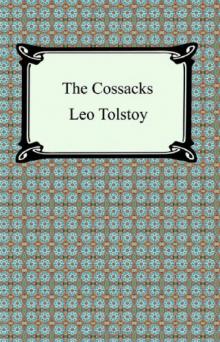 The Cossacks
The Cossacks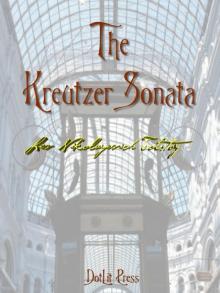 The Kreutzer Sonata
The Kreutzer Sonata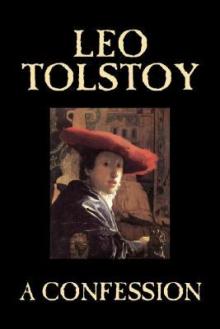 A Confession
A Confession The Kingdom of God Is Within You
The Kingdom of God Is Within You Father Sergius
Father Sergius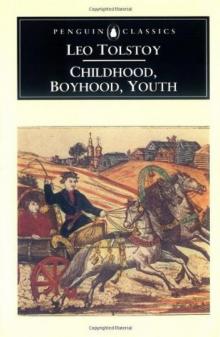 Childhood, Boyhood, Youth
Childhood, Boyhood, Youth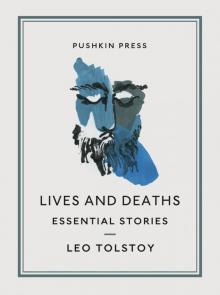 Lives and Deaths
Lives and Deaths The Devil
The Devil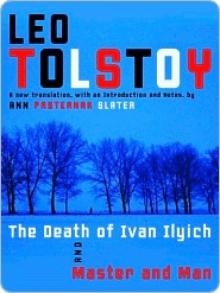 The Death of Ivan Ilyich and Master and Man
The Death of Ivan Ilyich and Master and Man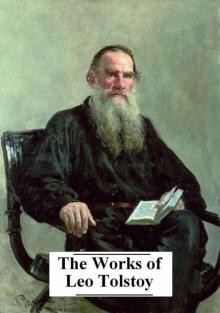 The Complete Works of Leo Tolstoy (25+ Works with active table of contents)
The Complete Works of Leo Tolstoy (25+ Works with active table of contents)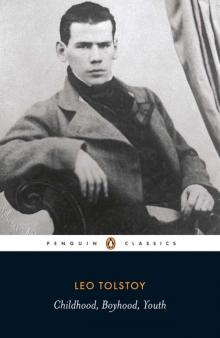 Childhood, Boyhood, Youth (Penguin ed.)
Childhood, Boyhood, Youth (Penguin ed.)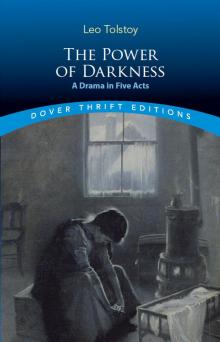 The Power of Darkness
The Power of Darkness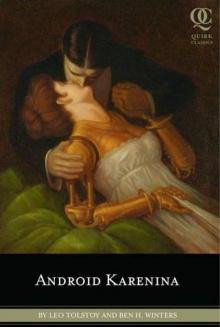 Android Karenina
Android Karenina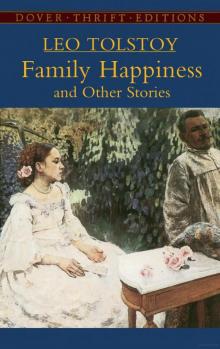 Family Happiness and Other Stories
Family Happiness and Other Stories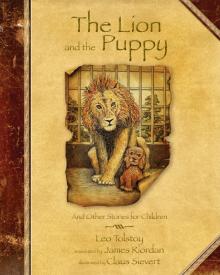 The Lion and the Puppy
The Lion and the Puppy Collected Shorter Fiction, Volume 2
Collected Shorter Fiction, Volume 2 Collected Shorter Fiction, Volume 1
Collected Shorter Fiction, Volume 1